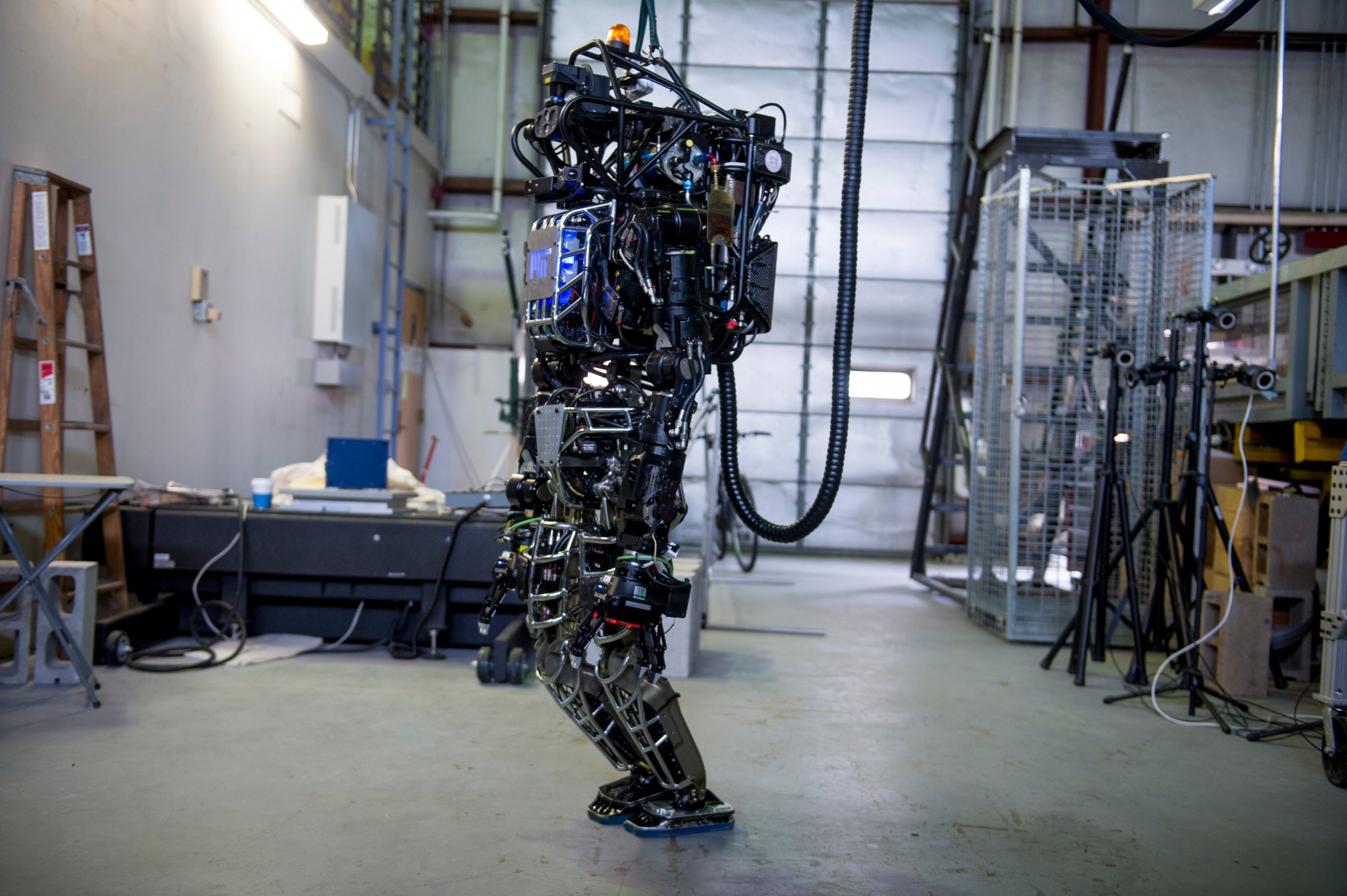
Five tech giants announced on Wednesday that they are launching a nonprofit to “advance public understanding” of artificial intelligence and to formulate “best practices on the challenges and opportunities within the field.”
The Partnership on Artificial Intelligence to Benefit People and Society is being formed by Amazon, Facebook, Google, IBM, and Microsoft, each of which will have a representative on the group’s 10-member board.
The partnership will conduct research and recommend best practices relating to “ethics, fairness and inclusivity; transparency, privacy, and interoperability; collaboration between people and AI systems; and the trustworthiness, reliability and robustness of the technology,” according to the announcement. “It does not intend to lobby government or other policymaking bodies.”
“We’re in a golden age of machine learning and AI,” said Ralf Herbrich, the director of machine learning at Amazon, in a prepared statement. “This partnership will ensure we’re including the best and the brightest in this space in the conversation to improve customer trust and benefit society.” (Herbrich will be Amazon’s representative on the board.)
The remainder of the board will be filled with representatives from academia and the non-profit world, according to a press release, which also indicates that the group is already in discussions with the Association for the Advancement of Artificial Intelligence and the Allen Institute for Artificial Intelligence. Additional corporate participants are also expected, it noted. (Google’s representative on the board will come from its London-based AI unit DeepMind, which developed software that, this past March, defeated the world champion in the ancient Chinese game of Go.)
In the past five years, technological progress and optimism about AI has been exploding, in part due to breakthroughs in a subfield known as deep learning—or, more properly, deep neural networks. Neural networks are software constructs, originally inspired by the way the brain works, that enable machines to teach themselves how to recognize complex patterns. They have already been responsible for enormous strides in machine translation, natural language processing, image recognition, and computer vision, unleashing among other things progress toward making self-driving cars a reality. They’re also the technology that has made speech recognition—which powers Amazon’s Alexa to Apple’s Siri to Microsoft’s Cortana to Google Now—dramatically better than it used to be.
The new partnership comes as its members increasingly use artificial intelligence to compete with one another in categories such as consumer electronics and business productivity software. It appears to be aimed, at least in part, at dispelling and defusing public concerns about artificial intelligence, a phrase that often inspires both rational and irrational fears. The rational ones include the prospect of economic dislocation and loss of jobs, while irrational ones—or at least premature ones—embrace science-fiction scenarios, in which robots rule the earth or society confronts the so-called singularity. (The singularity is the hypothesized point at which machines with superhuman intelligence begin to upgrade themselves without human oversight, starting a runaway cycle that leaves lowly humans ever farther in the dust.)
Earlier this year, Tesla and Space X CEO Elon Musk expressed his concerns that robo-investors could start wars as a way to maximize profits in Lo and Behold, the latest film by German filmmaker Werner Herzog.
“As researchers in industry, we take very seriously the trust people have in us to ensure advances are made with utmost consideration for human values,” Facebook’s Yann LeCun said in another statement accompanying the press release. LeCun, the director of Facebook’s AI research and its representative on the new partnership’s board, is a pioneer in the field of deep learning.
The recent upsurge of interest in AI has been reflected in burgeoning investment in AI-focused startups. Equity funding of such startups reached an all-time high last quarter of more than $1 billion, according to the CB Insights research firm. More than $7.5 billion has been sunk into such startups since 2011—with more than $6 billion of that coming since 2014.
This article originally appeared on Fortune.com
More Must-Reads from TIME
- Inside Elon Musk’s War on Washington
- Why Do More Young Adults Have Cancer?
- Colman Domingo Leads With Radical Love
- 11 New Books to Read in February
- How to Get Better at Doing Things Alone
- Cecily Strong on Goober the Clown
- Column: The Rise of America’s Broligarchy
- Introducing the 2025 Closers
Contact us at letters@time.com